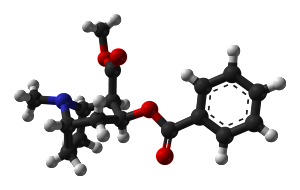
Florida DUI Laws | The War on Drugs
Florida DUI Laws & The War on Drugs
Florida DUI laws and the war on drugs are unnecessarily inextricably intertwined with one another. Florida Statute 316.193 states:
“(1) A person is guilty of the offense of driving under the influence and is subject to punishment as provided in subsection (2) if the person is driving or in actual physical control of a vehicle within this state and:
The Problem with Chapter 893
Florida Statute 316.193 prohibits driving while impaired by drugs by referencing Florida Statute Chapter 893. The problem is that Chapter 893 Florida Statutes does not contain all psychoactive substances that can impair an individuals ability to drive a vehicle. There are some glaring omissions in Chapter 893. For example, Ambien, generic name zolpidem, is not a controlled substance under Florida Law. Ambien is a federally controlled substance, but the Florida DUI statute does not specify substances controlled under federal law. Also excluded from Florida’s DUI statute are over the counter substances such as dextromethorphan and diphenhydramine. It is possible to be charged with other offenses while high on unscheduled substances. You might be convicted of reckless driving or vehicular homicide, if somebody dies, but you cannot be convicted of DUI.
Where DUI and The War on Drugs Meet
In order for a substance to be a “DUI eligible” substance it must be a controlled substance under Chapter 893. A substance must come to the attention of state lawmakers in order for a substance to be listed in Chapter 893. Accordingly, Florida DUI laws regarding drugs are reactive. Admittedly, there is no way to create a statute that will specifically enumerate all substances capable of impairment. However, the law, as written, does not take into account the changing nature of the recreational pharmaceutical market. The law addresses the issue on a substance by substance basis. The law is ineffective against specific drugs until such time as that specific drug causes a problem.
Currently, the only way to make a substance “DUI eligible” is to place it on the controlled substance list. However, reactively adding new substances to the controlled substance list is unnecessary if impairment wasn’t limited to controlled substances under Chapter 893. Florida Statute 316.193 needs to be changed unless the legislature wants to go back to the drawing board every legislative session when a new concoction rolls out.
Changes Needed
No drastic changes are needed to change the current statute to a statute that evolves as legal and illegal drugs are developed and hit the market. This is the change that I would propose:
“(1) A person is guilty of the offense of driving under the influence and is subject to punishment as provided in subsection (2) if the person is driving or in actual physical control of a vehicle within this state and:
The revision, as written above, eliminates the continuous need to amend Chapter 893 Florida Statutes in order to incorporate new substances into the DUI statute. Not only is it efficient, but it also effectively closes the over the counter loop hole in Florida’s DUI Laws.
From a defense perspective, this really doesn’t change anything. The state still has the burden to prove that there was a substance in the driver’s system and that the substance is capable of and did impair the defendant’s ability to drive a car. This is not a metabolite DUI statute. The state would still have to perform lab tests on blood and urine. The belief that this would somehow permit a DUI conviction based on the unsubstantiated belief of a police officer does not have any merit.
For more information, please contact us at:
The Law Offices of Michael A. Dye, PA, 1 East Broward Boulevard #700, Fort Lauderdale, FL 33301 (954)990-0525 or
The Law Offices of Michael A. Dye, PA, 2 S Biscayne Blvd, Miami, FL 33131 (305)459-3286





